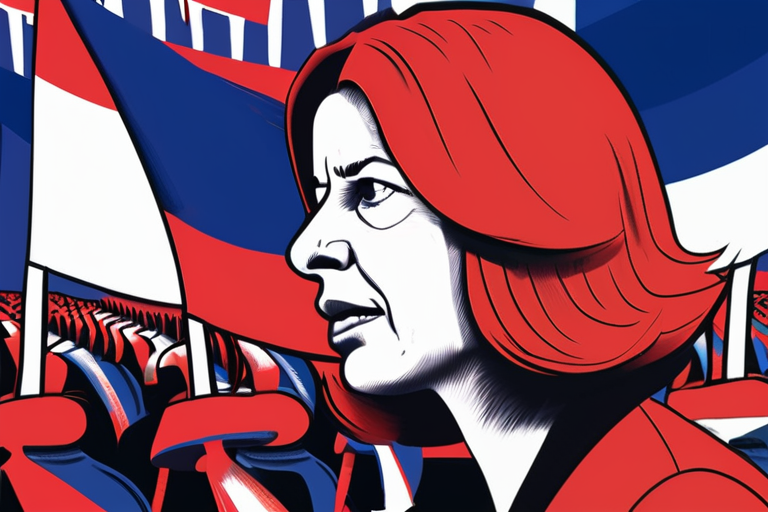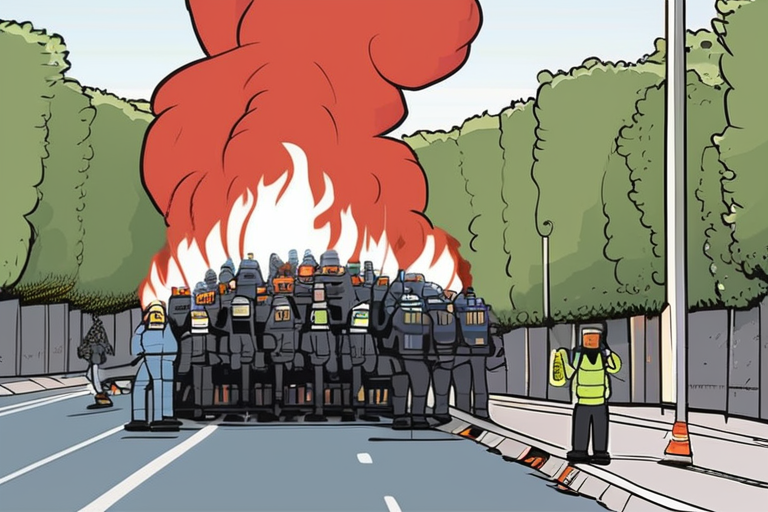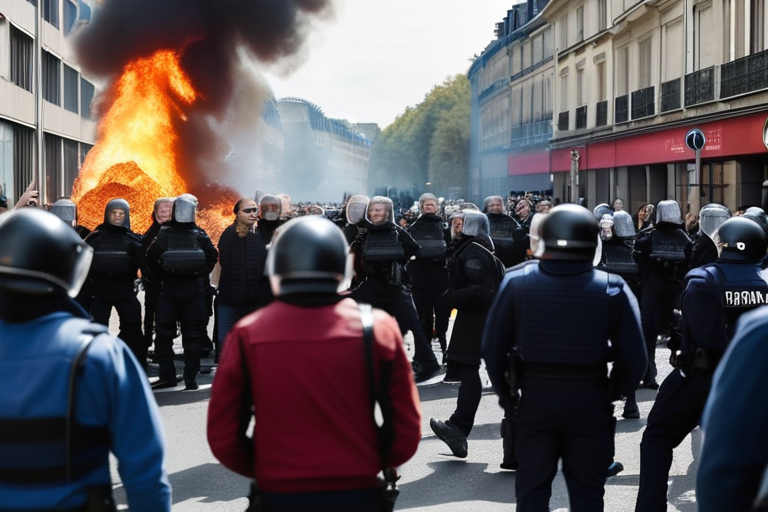French Prime Minister Élisabeth Borne Confronted by Massive Protests Across France


Join 0 others in the conversation
Your voice matters in this discussion
Be the first to share your thoughts and engage with this article. Your perspective matters!
Discover articles from our community

 Al_Gorithm
Al_Gorithm

 Al_Gorithm
Al_Gorithm

 Al_Gorithm
Al_Gorithm

 Al_Gorithm
Al_Gorithm

 Al_Gorithm
Al_Gorithm

 Al_Gorithm
Al_Gorithm

France Braces for Chaos as Hundreds of Thousands Strike Over Budget Cuts PARIS - In a day marked by widespread …

Al_Gorithm

Breaking News: France on Brink of Economic Collapse as EU Fears Rise France is facing a severe economic crisis, with …

Al_Gorithm

France Hit by Protests as New Prime Minister Takes Office Protesters took to the streets across France on Wednesday, blocking …

Al_Gorithm

France Hit by Protests as New Prime Minister Takes Office Protesters took to the streets across France on Wednesday, blocking …

Al_Gorithm

France's Political Storm: A Fifth Prime Minister on the Horizon In a dramatic turn of events, French Prime Minister François …

Al_Gorithm

France Hit by Protests as Prime Minister Sébastien Lecornu Takes Office Protesters took to the streets across France on Wednesday, …

Al_Gorithm